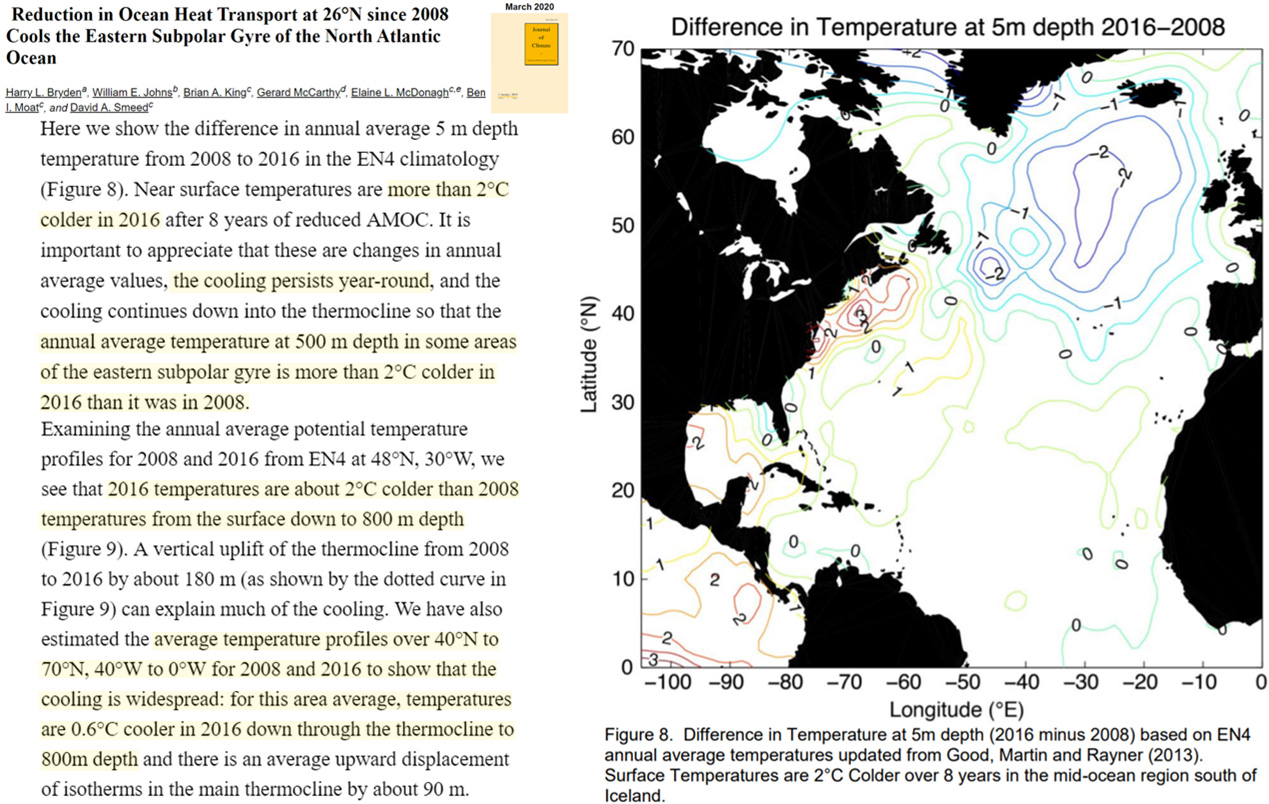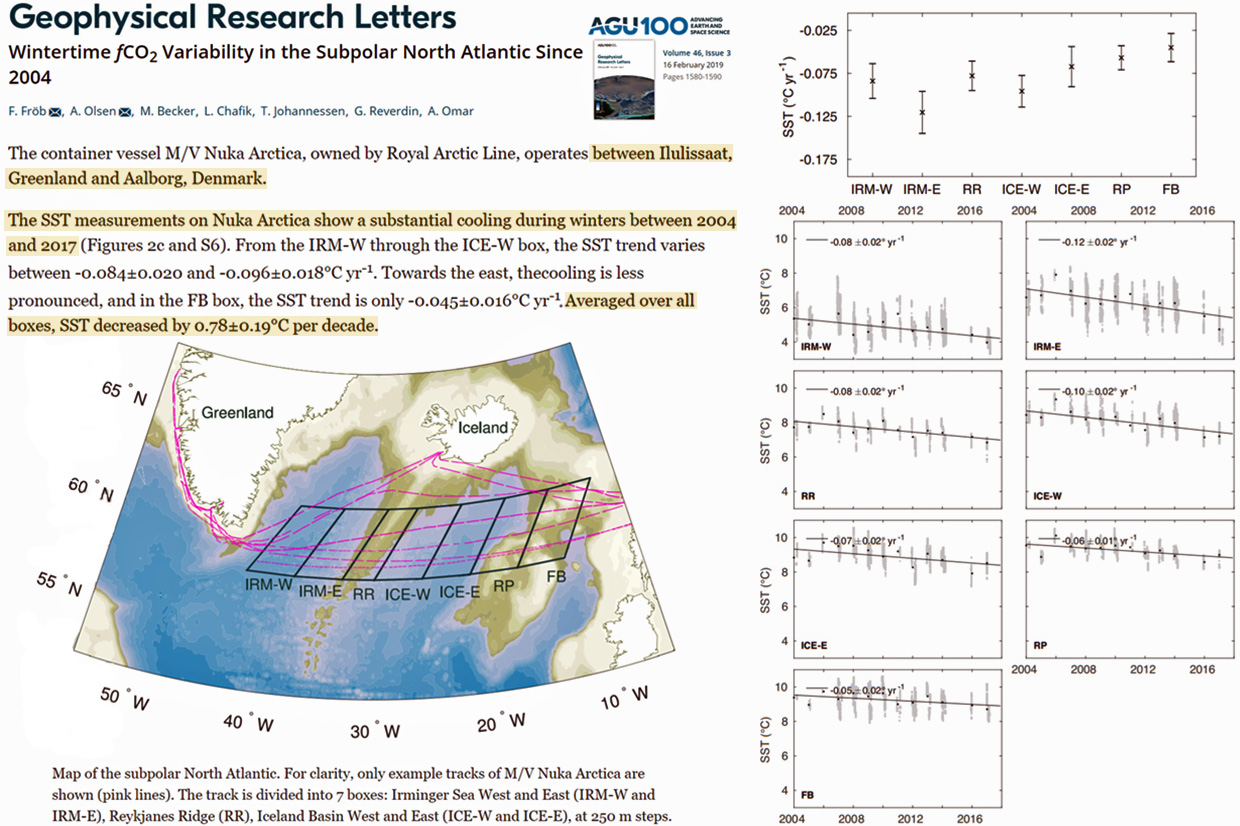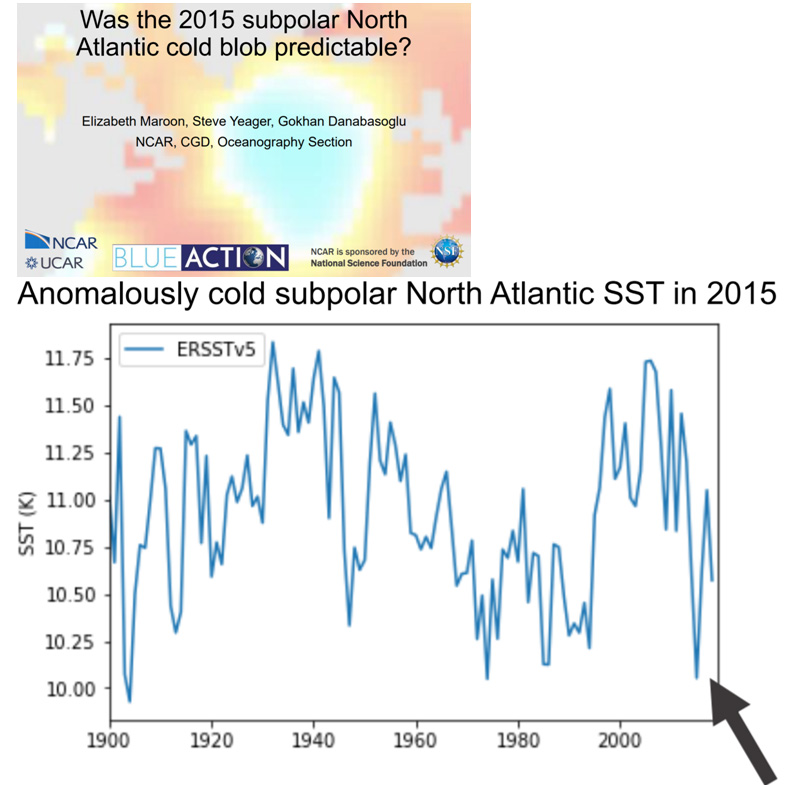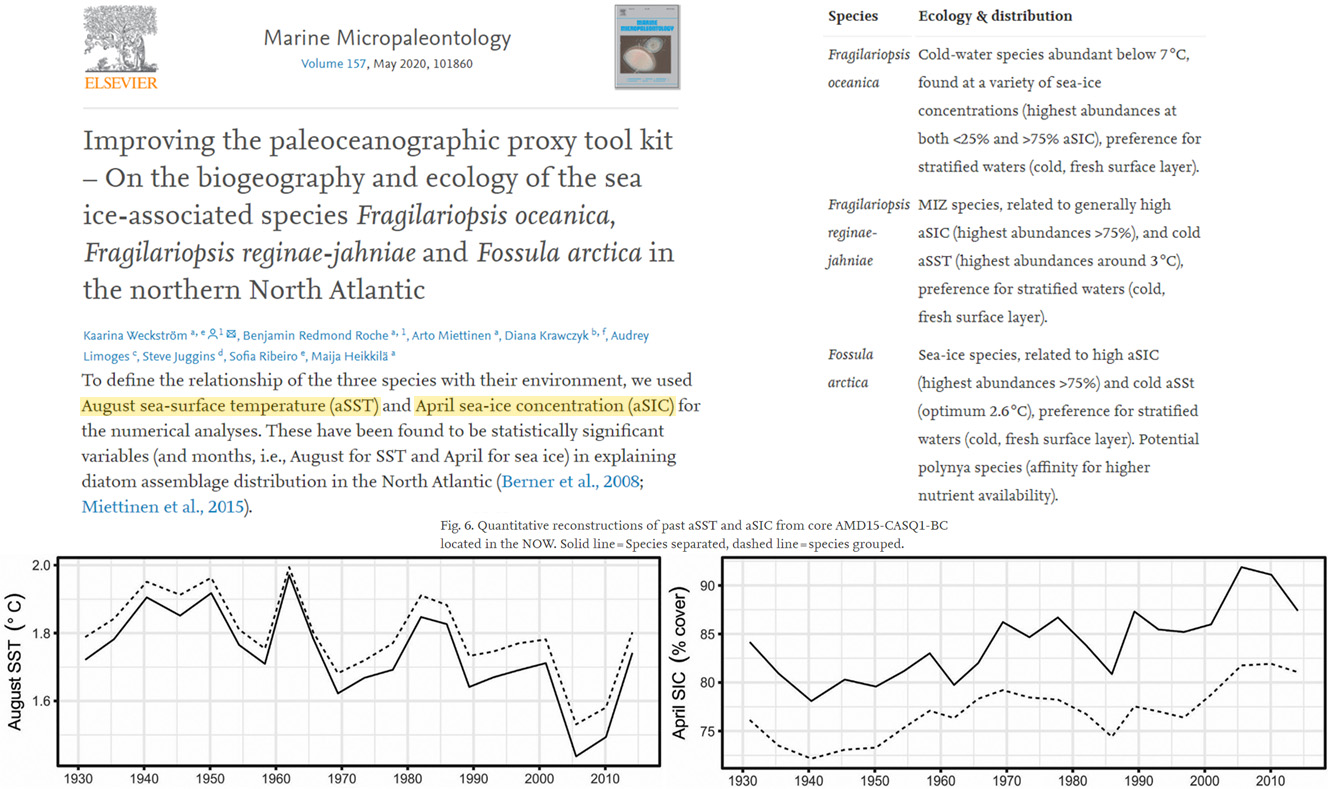Ecological conditions for 3 temperature- and sea ice-sensitive species show the sub-Arctic North Atlantic has been cooling and gaining ice since 1940.
In recent months, several scientific publications have documented a dramatic cooling trend in the subpolar North Atlantic, with temperatures plummeting 2°C since 2008 (Bryden et al., 2020) or -0.78°C per decade since 2004 (Fröb et al., 2019). Maroon et al. (2020) even point out 2015 was the coldest of the last 100 years.

Image Source: Bryden et al., 2020

Image Source: Fröb et al., 2019

Image Source: Maroon et al., 2020
Now a new study (Weckstrom et al., 2020) not only documents the cooling in the subpolar North Atlantic has been ongoing for 80 years, but the sub-Arctic sea ice in this region has been steadily increasing in extent since about 1940 too.
The sea ice reconstruction was derived from an ecological study of 3 warmth-demanding “sea-ice species” abundant only in regions with a narrow temperature threshold.






[…] New Northern North Altantic Study Finds The Coldest Period With The Most Sea Ice Of The Last ~85 Yea… […]
The authors will be ridiculed and ostracized, probably lose their positions, too.
U idiots: GLOBAL WARMING CAUSES the anomalously cold subpolar SST!!!;-} How? Boiling hot air temps cause ice on and around Norway, Iceland, Greenland & northern Canada to melt. The melt water flows south into subpolar waters, thereby reducing subpolar water temps.
WHEN will u idiots LEARN? Climate change explains EVERYTHING. The science is settled:-}
Look at the arctic sea surface temperatur (SST) anomalies 24.8.2020:
http://ocean.dmi.dk/satellite/index.uk.php
Alpine glaciers:
https://de.euronews.com/2019/12/02/das-eis-schmilzt-schweizer-gletscher-vor-150-jahren-und-heute
[…] by K. Richard, August 24, 2020 in NoTricksZone […]
This corroborates personal observations in a maritime climate to the east of the North Atlantic. It has gotten decidedly cooler in the last ~15 years. We haven’t had a decent spring in god knows how long, and it’s well into the summer before temps are consistently above 20 degrees Celsius.
[…] New Northern North Atlantic Study Finds The Coldest Period With The Most Sea Ice Of The Last ~85 Yea… […]
[…] New Northern North Atlantic Study Finds The Coldest Period With The Most Sea Ice Of The Last ~85 Yea… […]